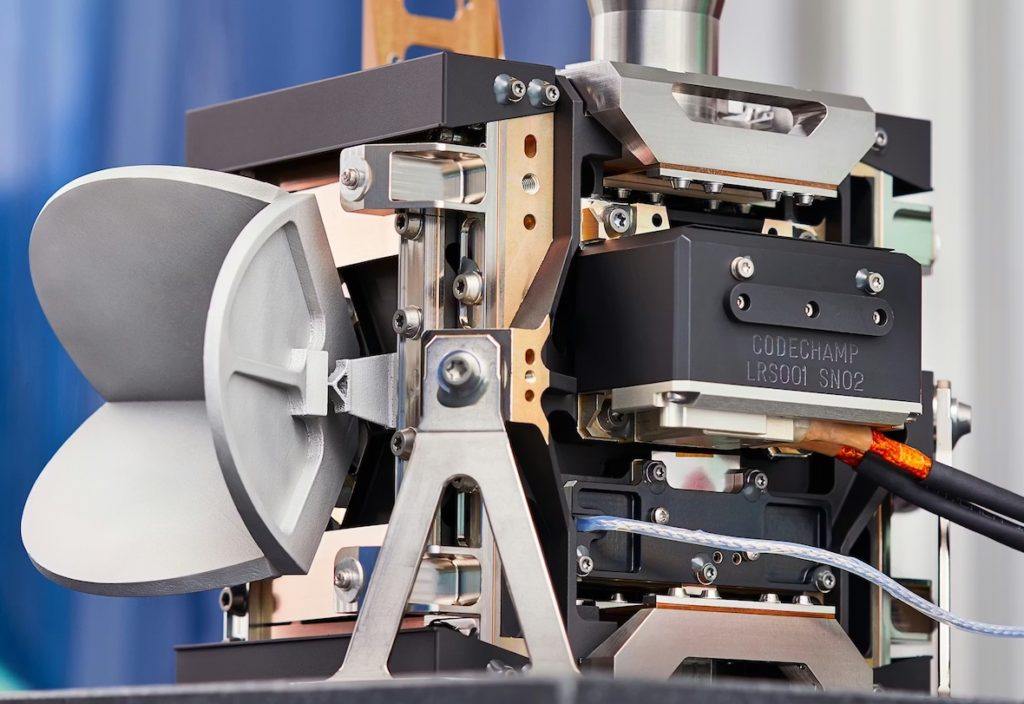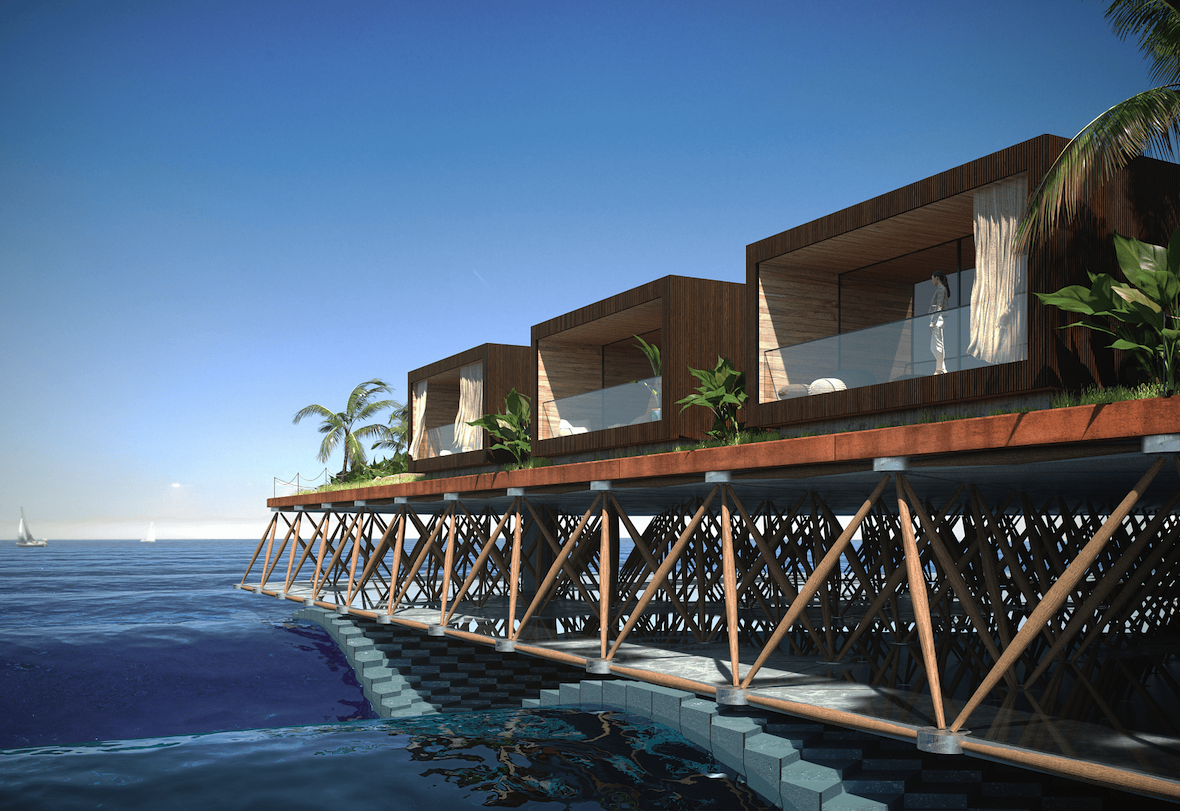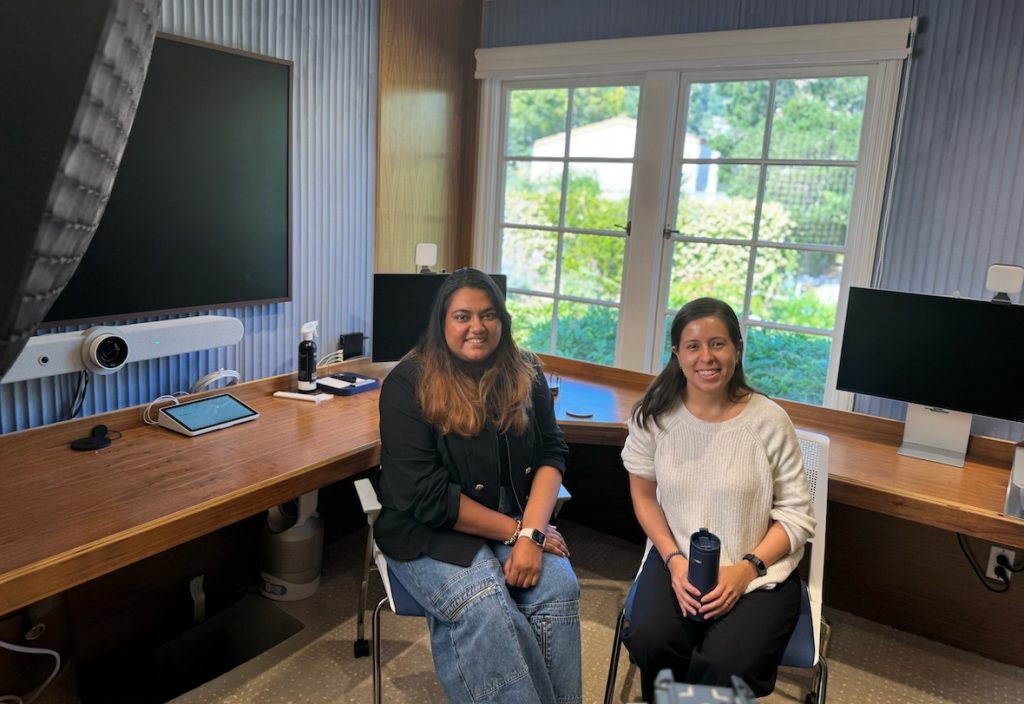
Neuchâtel’s SeaNest develops floating platform technology to meet rising sea level challenges
11 August 2025
 SeaNest’s platforms could host housing, storage areas, ports, and marinas, with many other possible uses. | © SeaNest
SeaNest’s platforms could host housing, storage areas, ports, and marinas, with many other possible uses. | © SeaNest
From Saint-Blaise, in the canton of Neuchâtel, SeaNest is designing modular floating platforms, partly made from recycled plastics, to create sustainable habitats on water.
As climate change drives sea level rise and threatens coastal communities, Neuchâtel-based start-up SeaNest is developing an innovative solution : modular floating platforms designed to support future housing, infrastructure, and services on water.
The concept is built around large, hexagonal modules assembled like puzzle pieces to form stable structures of various sizes. Each module combines a rigid upper structure with a floating base made from recycled plastics, designed to absorb wave energy and maintain stability even in rough conditions. The current prototype, measuring 40 m², has already withstood strong winds on Lake Neuchâtel. A larger 160 m² module is planned for 2026, with future testing in diverse environments including saltwater and ice.
SeaNest’s approach addresses both the need for new habitable space and the environmental challenge of plastic waste. By repurposing discarded plastics into durable floating structures, the company aims to reduce landfill and ocean pollution while lowering the carbon footprint of construction. The long-term vision includes localised production in regions most affected by rising waters, enabling platforms to be adapted to specific environmental conditions.
A global vision for floating infrastructure
Potential applications extend far beyond residential use. The platforms could host marinas, warehouses, bridges, hospitals, or even military installations, with surface areas spanning several square kilometres. The company estimates an initial market in the marina sector worth USD 19 billion annually, followed by broader adoption by governments and private developers.
SeaNest benefits from an extensive innovation ecosystem, collaborating with the Swiss Center for Electronics and Microtechnology (CSEM), engineering schools in the cantons of Vaud and Fribourg, and local boatbuilding specialists. Its headquarters and competence center will remain in Saint-Blaise, anchoring the project in the region while fostering international partnerships.
The start-up has already attracted interest from countries such as Indonesia, with its 17,000 islands, and the United Arab Emirates, which are seeking advanced maritime infrastructure. SeaNest plans to license its technology globally, ensuring production close to demand. With CHF 1.3 million already invested, the company is seeking CHF 13 million to scale up manufacturing of its innovative floatation systems and move towards industrial production by 2026.

